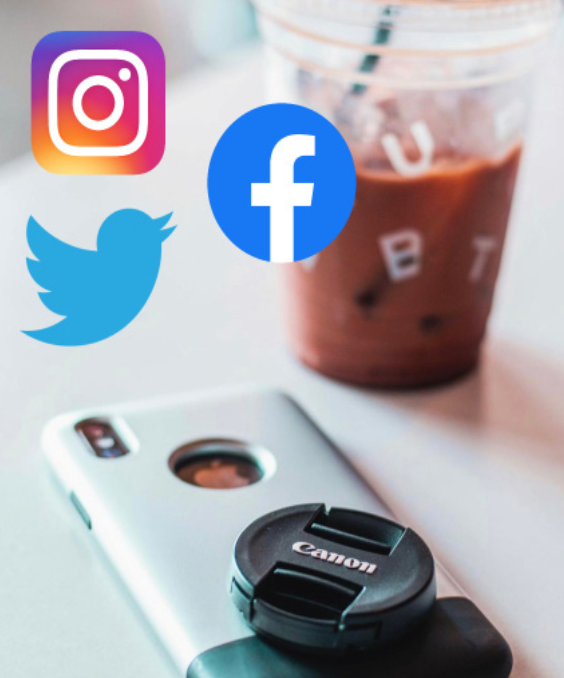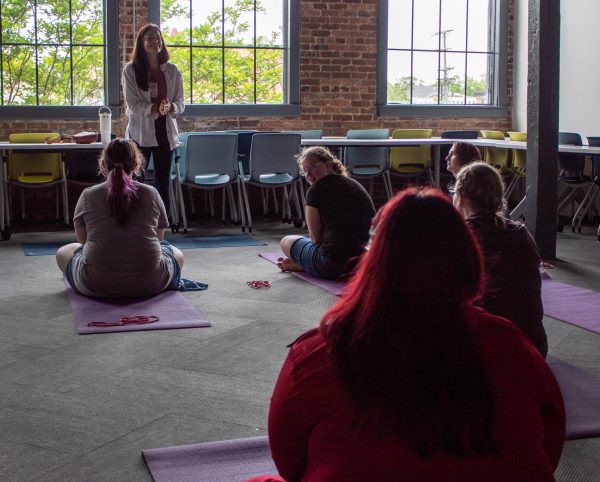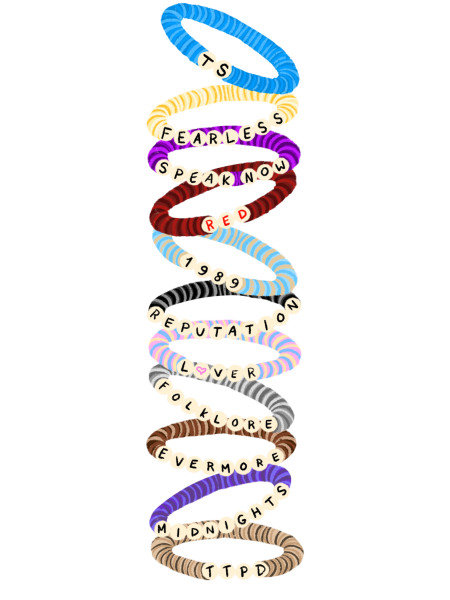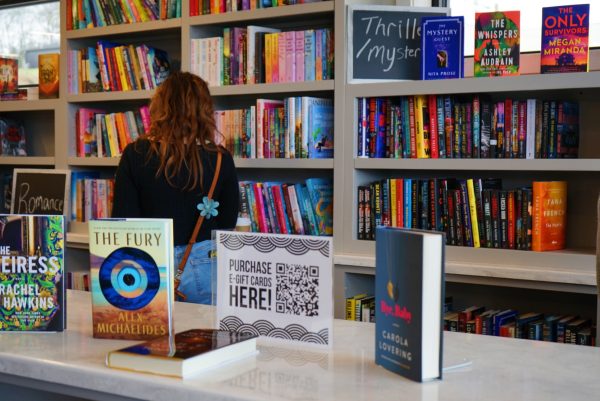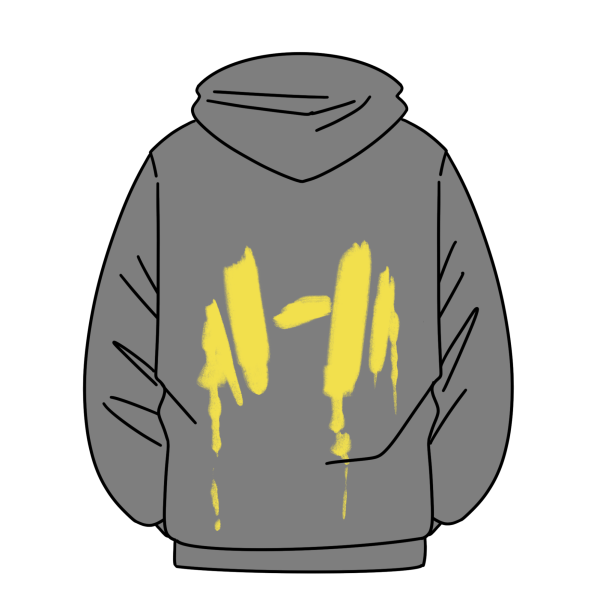Using social media in a healthy way
September 2, 2021
It’s that time of the day again.
You have a 15 minute break between classes. That’s a quarter of an hour to get your books, computer and assignments to a completely different part of campus. You probably should be getting your notes ready and preparing assignments, but instead, the alluring buzz of notifications beckons you to reach for your pocket or bag.
You are met with a slab of glass with a compilation of notifications. Dozens have liked, commented and followed you. An unusual sense of accomplishment fills your mind. Each like seems to give a “shot” of chemicals in your brain. Serotonin, Dopamine, you name it.
Like any addiction, one to social media has begun to warrant serious consideration in recent years. The Addiction Center lists social media addiction alongside a number of illicit drug, alcohol and pill-related addictions society struggles with. The implications of this widespread issue primarily involve mental health impacts. In one statistic, the addiction center cited 27% of children that spend three or more hours per day as facing negative mental health ramifications. These include depression, social anxiety, negative body image and decreased levels of compassion and empathy toward others. Today, It’s the latter two of those effects I want to address.
As the Social Media Director for the Flor-Ala, and for a marketing company in town, I tend to spend a lot of time monitoring brand presence online for my clients. Like anyone else, I spend way too long on Instagram, Snapchat and Facebook – although now my job is a justification for doing so.
In my experience managing social media over the past 5 years, I’ve begun to notice a massive paradigm shift in how people interact with each other online. Friendly face-to-face conversations and civil discussions of differing ideas have been replaced by walls of text furiously typed in online arguments and rants.
Too often people find themselves so consumed with self-righteous rage and the need to be “right” that they fail to see beyond their own keyboard. This form of tyrade knows no specific boundaries either, as many people of differing walks of life and politics fall victim to the same blind arguments.
At the end of the day, these arguments often result in no clear conclusion and an abundance of wasted time by both engaging parties. Democrats, Republicans, Libertarians, Anarcho-capitalists and Anti-capitalists all equally fall victim to this divisive rage in place of engaging in a constructive conversation with the other side resulting in a better understanding of differences and commonalities. Each side simply sees the other as a target to be conquered, rather than an ally in critical discussion.
Discussions based in logic are replaced by babbling rants, grounded only in irrational emotional response. Social Media companies have a major stake in these conflicts as well, as they boost engagement, and ensure users spend more time on their respective platforms, which translates to more advertising revenue.
The algorithms that power these platforms are a major causation for this issue as well. For those who don’t know, the “algorithm” refers to the system that powers everything a user sees on social media.
When a user leaves a like, comment or shares a post, the interaction notifies the platform that the category of content is something the user is interested in and knows to show them similar content in the future. This can be a positive aspect of social media in some ways.
Users on Pinterest who like apartment designs and coffee will be shown more helpful and interesting posts. People who laugh at cat videos on TikTok for hours on end will get more of the same. However, this can sometimes create what I refer to as a “feedback” loop for other interests.
Take YouTube for example, the entire modern “Flat-Earth Society” traces its roots back to a video by Mark Sergant, titled “FLAT EARTH Clues Introduction,” The video, which was pushed widely by YouTube’s recommended algorithm to those who favored conspiracy content, has over 1.1 million views to date and has encouraged a widespread movement that defies scientific principle – although there are some that follow the Flat-Earth movement with ironic intent, as with other internet movements, just for the “memes” of it.
In cases like this, the user could watch one surface-level conspiracy video – even of an ironic nature – and suddenly find themselves many hours down the rabbit-hole spending exorbitant amounts on “Super-Male Vitality” placebo pills from fringe websites like INFOWARS.com.
This is also the case with the type of content a user produces. An angry post on Facebook gets more attention from the algorithm for a reason: the more people who see it, the more people are likely to engage with it and generate revenue for the platform.
In many cases, it’s in the platform’s best interest to keep you unhappy, stressed and thirsting for more time and validation on their platforms. Angry posts lead to angry comments, which lead to more angry posts, and the feedback loop continues.
This all poses the question: Can you live a happy and healthy life with social media?
In my experience, yes, but you need to fundamentally change the way you approach and understand the online world.
As someone who spends a large amount of time on Social Media for work on a daily basis, here are a few tips I’ve used.
First off, ensure that your life in the real world takes greater precedence in your daily routine. This sounds like a bit of a “no-brainer” right? Things in life should always overcome things on your phone screen. But ask yourself this, how many times have you found yourself picking up your phone in that boring day-to-day moment? How many times have you read a headline on facebook that has gone on to be a major influence in your perception of a situation?
It’s hard to avoid social media, but you can help your understanding
of different topics and overall mental health by reading multiple negative and positive sources of coverage regarding a topic or event. Obviously this doesn’t apply to every situation, but reading a dozen headlines about how the election of candidate A or candidate B will result in the end of the world won’t exactly result in a positive mental
state. Of course you should always remain well-informed on situations, but understand that the world will always go on, and so must your life.
Next, personal relationships and interactions are critical. Humans are social creatures. We need in-person interaction on a fundamental level to survive. This reigns true even for less social people, who instead surround themselves with a smaller, but tighter-knit group of people. In my experience, I’ve always had a better day filled with more in-person conversations than I have had online. Putting a face to a topic of discussion will always make a massive difference, as a person finds themselves no longer confined to a “target to be conquered” with tag lines and insults by another party. Essentially, if you wouldn’t say something to a person’s face, why should you say it while cowering behind a keyboard?
Finally, view social media as more of a forum for discussion and place for sharing life events. Posting updates about places I’ve been purely for the purpose of showing friends, family and new people I’ve met – what I’ve been up to has helped me to foster a much healthier use of platforms like Instagram.
Too often people use these posts as a call for validation, getting the previously mentioned Dopamine hits from each like they get.
When it comes to personal sharing, you need to understand that life is about much more than just the number of likes on a single post. As a human- being, your self-worth is much more important than a number or statistic.
Above all else, Social media is simply another tool. Like the other things in life, it can be used responsibly and positively, but it can also take over your life if you forgo personal responsibility for your usage habits and let it dictate your value.
We are all human beings with our own unique experiences and struggles, and we are all deserving of a basic amount of kindness and respect toward one another.
Don’t let an algorithm create a divide based on specific labels and buzzwords between you and others.
We are all greater than the sum of our differences.


